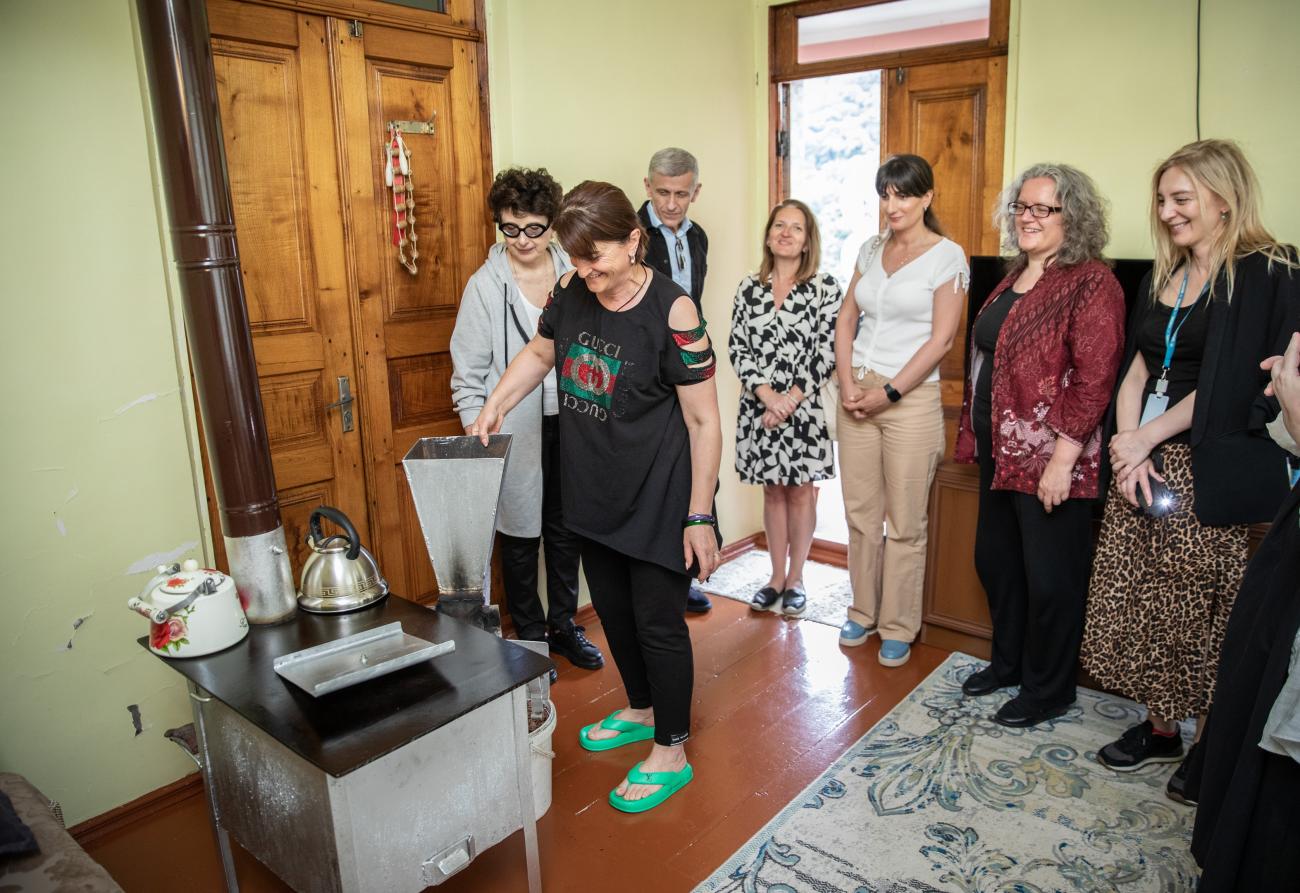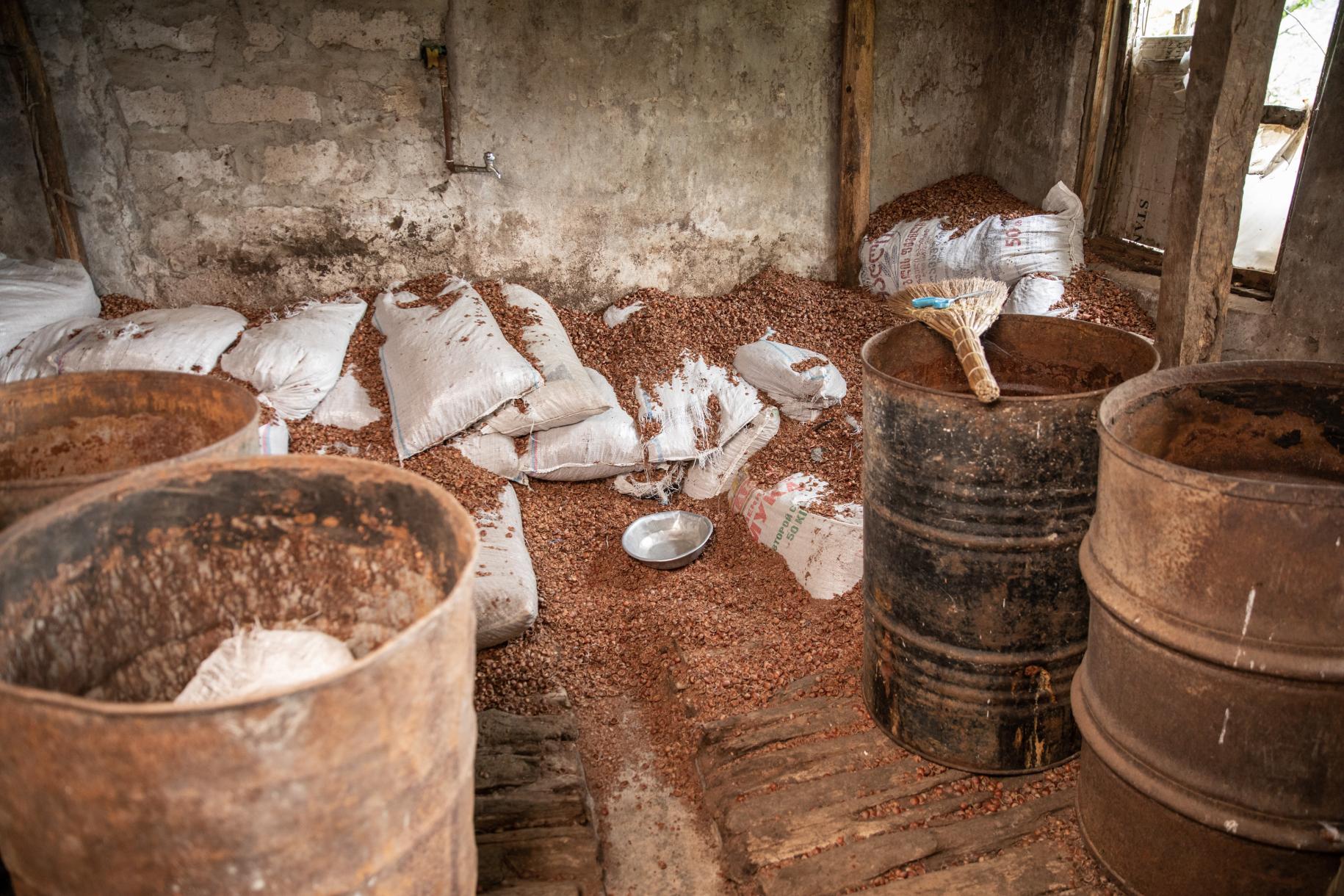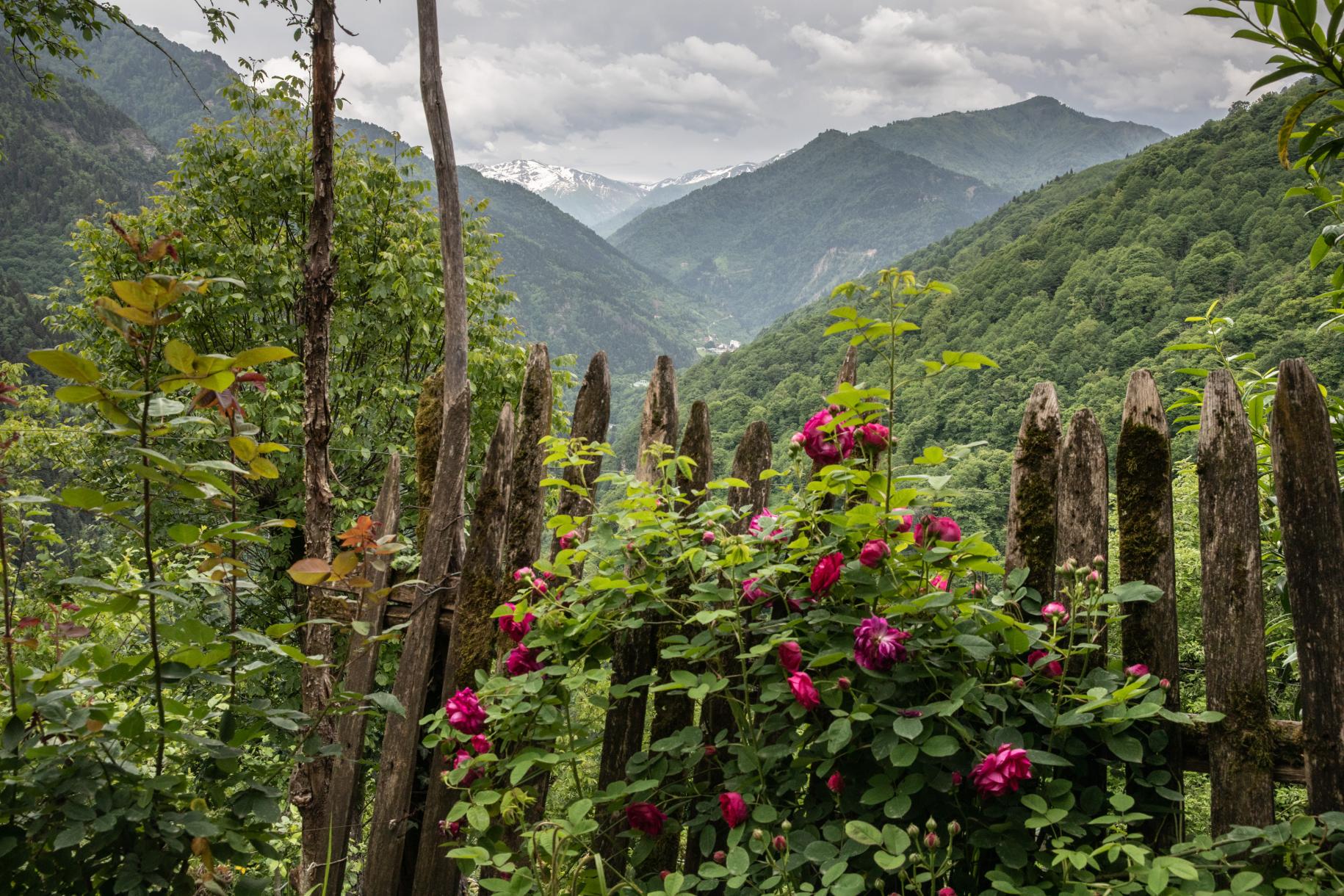Georgia captures bioenergy in a (hazel)nut shell

Hiding in the woods in Machakhela National Park, the house of Marina Dzneladze is just one of many similar-looking houses scattered across the village of Zemo Chukhuneti, Khelvachauri Municipality in Georgia. What distinguishes her house from others is a solar water heater installed on her roof. And that’s not all. Marina also uses biomass fuel to generate heat for her home.
Marina’s is one of sixteen households that were provided with firewood alternatives and renewable energy sources – biomass, energy-efficient stoves and solar panels by the United Nations Development Programme and the Global Environment Facility joint programme in Adjara.
Marina was one of the first residents to lead the charge, adopting these new technologies in 2017, as she shared with UN Resident Coordinator Sabine Machl during her recent visit to the region. Switching to a fuelwood alternative has changed her life.
"First of all, it helps to keep the home at the right temperature in winter and ensure we have hot water all the time. And second thing, it's good for the environment," she says.

In Georgia, the types of heating fuels used differ between urban and rural areas. Natural gas is a major source of heating for households in urban areas. According to UNDP data, almost three-quarters of Georgia’s rural population still relies on firewood burning, which results in high carbon emissions, one of the main drivers of climate change and deforestation. Unsustainable timber consumption reaches 2.4 million cubic meters a year, which costs Georgia around GEL446 million (about USD 171 million) annually.
A promising alternative for wood is the combustion of agricultural residues, such as hazelnut shells. Georgia is traditionally rich in hazelnuts. But it was just recently that communities started putting waste nut shells to practical use as a source for creating bio-fuels. Amid growing concerns about the impact of climate change, adopting green energy sources as a means to mitigate its effects has never been more urgent.
“This intervention is helpful for households,” Marina says, highlighting the pros of biomass usage. “It is more reliable and less laborious than cutting firewood and transporting logs. And it’s profitable too – now we spend less than we used to. Hazelnut shells can provide more heat than firewood. Storing biomass makes handling logs relatively easy too.” Marina has allocated a small barn to store nutshell bags.
“Such home-grown, low-cost solutions lay the foundation for an environmentally friendly community,” says Resident Coordinator Sabine Machl, appreciating the efforts to switch to cleaner alternatives.

Being the first ones to adopt these solutions hasn’t been easy. Marina’s neighbors were skeptical about the initiative in the beginning. “Even my father who has always used firewood for heating took it with skepticism,” she notes.
Communities and families like Marina first received information about energy efficient ways of heating and the use solar water heaters through training provided by the project. Those trained passed on the knowledge to others. Shortly after, more households decided to shift to biomass energy and now 80 households in Machakhela National Park use fuelwood alternatives.
“Use of biomass, such as nutshell, can provide a sustainable source of energy for heating, thus reducing the reliance on traditional fuels, which contribute to deforestation and air pollution,” echoes the Resident Coordinator. “We are looking to replicate the work UNDP has done in the wider Machakhela Protected Areas to help reduce reliance on firewood. This way we try to ensure everyone has access to reliable, affordable and sustainable energy."
With new climate financing support from the Government of Japan, UNDP also continues to promote solar energy technologies and introduce greener, healthier and more sustainable solutions in the wider Machakhela Protected Areas.
Over 250 households are expected to benefit from the new initiative, including local women. For Georgia, this is a small but sure step for sustainability, lighting the way for a better future.
To learn more about the work of the UN in Georgia visit Georgia.un.org













